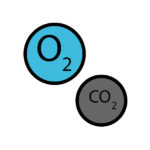 Heat and humidity add an extra level of stress to the body and can negatively impact triathlon performance. To race your best, heat preparation will help you maximize your performance. Here are some strategies to help you dial in what works best for you.
Heat and humidity add an extra level of stress to the body and can negatively impact triathlon performance. To race your best, heat preparation will help you maximize your performance. Here are some strategies to help you dial in what works best for you.
1. Acclimate to race conditions
Do your research about the conditions in your key race. How hot will it be? Is it humid? Hilly? Where and how often will they have aid stations? What do they offer at those aid stations? Be sure to check the predicted temperatures, but also the “real feel” temperatures. They can be as much as 10 degrees higher.
If you live in a similar environment to your upcoming race, get outside in the heat so you can acclimate. It takes about 1-2 weeks to fully acclimate to the heat. Don’t avoid the hottest parts of the day. When you’re going to a different climate, we need to get a bit creative. For example, if you live in a dry place, getting into a steam room is helpful.
Very few of us can arrive at a race for 2 weeks before hand. Instead, plan to spend time in saunas, hot tubs or steam rooms to help your body prepare for the heat. Work up your time gradually but stay long enough to get uncomfortably hot. Then increase your time each session. Pairing this with a workout speeds the heat acclimation process. You can also turn up the heat when on your indoor trainer or treadmill or wear extra layers of clothes inside or outside. Consider avoiding air conditioning during the acclimation process can be helpful, but do not compromise your sleep in the weeks leading up to a big race.
One new device that helps with understanding your core body and skin temperature during training is the CORE body temperature sensor. This monitor can also help you train more effectively using elevated body temperatures (heat load training) as a means of performance enhancement.
2. Hydration
As heat exposure continues and training time in the heat lengthens, your body produces more sweat to cool down. Excessive sweating can lead to dehydration and electrolyte imbalances. And, if not mitigated, headaches, heat cramps, heat exhaustion or heat stroke.
Hydration through the acclimation process is critical to dial in your fluid and electrolyte needs. Using a combination of plain water and hydrating sports drink (3-4% glucose solution) works well for most athletes. Dialing this in during training creates a powerful plan to then execute on race day. Consider partially pre-freezing bottles or the hydration pack bladder for cool water longer.
Consider using a CamelBak, Nathan or similar hydration pack to ensure you are meeting your fluid needs. In the weeks leading up to your big, hot race, focus on getting heat acclimated. In the 1-2 days before the race, get out in the heat for shorter periods, and use pre-cooling activities as you get closer to the race. This strategy can help you tolerate the heat better during races.
Another newer device shows great promise to help you personalize your fluid and electrolyte needs: NIX Biosensor . It helps take the guess work out of your personal sweat rates and electrolyte loss during workouts. You wear a sensor patch when training and it gives you real time data and a summary of your fluid and electrolyte loss.
3. Cooling strategies before training and racing
Lowering core body temperature before your race helps you go longer before overheating. Some ideas: ice vests, cold water immersion, ice slurry drinks (crushed ice in water or sports drink, i.e. a “Slurpee”), using a wet frozen t-shirt or towel. Plan to bring a good cooler and thermos to the race start. Ice slurry drinks are very simple and very effective at cooling core body temperature.
Always wear sunscreen to prevent your skin from burning; this helps keep your body cooler.
4. Staying cool during racing and training
Clothing: A race kit that uses evaporative cooling fabrics helps cool the body. As well, cooling sleeves can be helpful. Keep your head covered with a light weight cap or visor during the run. Also, specialized head/neck wraps that are frozen or special materials (Omius) can help cool your head. Most races will have cold, wet towels, ice packs or ice “sock” (literally a sock filled with ice) available out on the course.
Dumping water on your head and body will help you to stay cool. Keep cool on the bike by pouring some water on your head. This helps you arrive on the run course less likely to be overheated. Drinking ice water helps your body stay cool. Just make sure it does not irritate your gut.
5. Post race cooling
Cooling down after a race is very similar to cooling down pre race: crushed ice drinks, cool bath/shower, ice/cooling vest, and sleeping with flat ice packs or a cooling pad.
6. Other race strategies for extreme heat:
Pacing: If the heat stress becomes too high, you may need to back down on your pacing. For the run, walk breaks may become necessary. Slowing down reduces stresses on your body and allows you to take in cooling drinks and ice towels. Heart rates are elevated for everyone in the heat, no matter your pace.
Fueling/hydrating: If you experience gut symptoms or cramps, slowing down will be mandatory. In the heat, it’s harder to absorb calories because all of your energy is going to working muscles and working to keep your core temperature under control. Ingesting small amounts frequently is a great strategy. You may need to focus more on liquids than solids. Take your time at aid stations to get what you need and also get additional medical help if needed.
If your gut is cramping, you’re getting a headache, or you feel sloshing in your stomach, it is not emptying of fluid and nutrition; you are most likely very dehydrated. You must slow down, even walk. Take in only plain water until it improves. You can also use the sip, swish and spit method of it gets really bad. Spitting the fluid out keeps your gut from additional irritation and the swishing tells your brain and body “I’m hydrated, I can keep going”.
Quick Summary:
| Goal | Recommended Tech |
| Lower core temp before race | Cold water immersion, Ice slurries, Cooling vest |
| Stay cool during race | Arm coolers, Evaporative clothing, Ice socks |
| Monitor performance | CORE body temp sensor; NIX biosensor |
| Hydrate efficiently | Insulated bottles, electrolyte planning, hydration pack |
| Recover safely | Cold baths, Cryotherapy (if available), ice slurries, cooling vests or ice packs |


